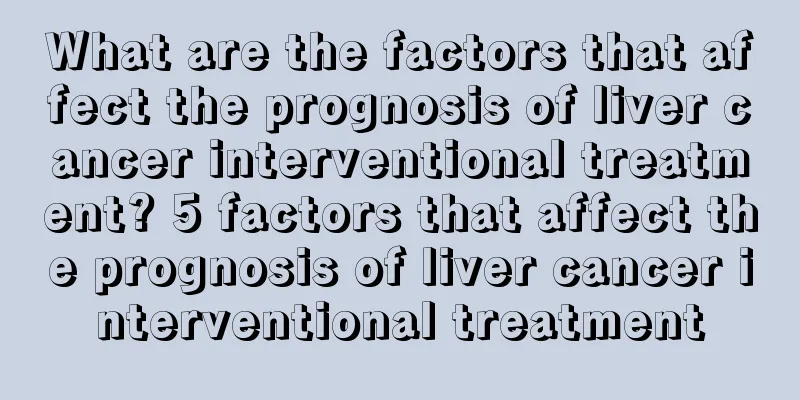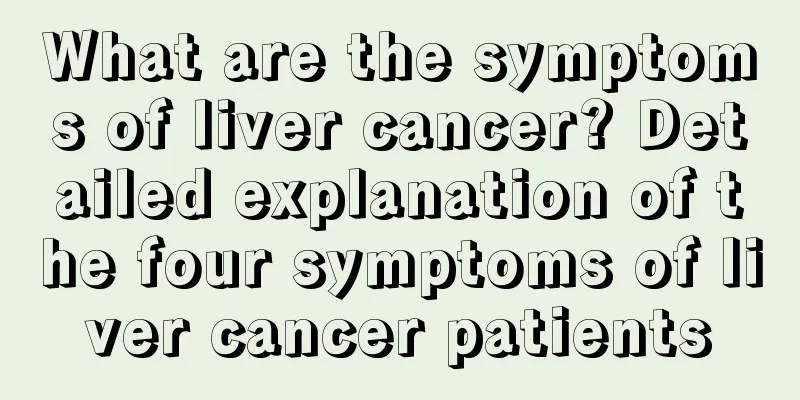What are the factors that affect the prognosis of liver cancer interventional treatment? 5 factors that affect the prognosis of liver cancer interventional treatment

|
There are many factors that affect the prognosis of liver cancer interventional treatment. Although many literatures involve these factors, different conclusions drawn from different experiences are bound to be different. 466 Oncologists believe that the factors that affect prognosis are tumor type, clinical stage, treatment method, patient's condition, portal vein cancer thrombus, etc. (1) Tumor type: ① Tumor cell type and blood supply. Hypervascular and multivascular tumors have better prognosis than hypovascular tumors. Hepatocellular carcinoma is mostly the former, while cholangiocarcinoma is mostly the latter. Therefore, hepatocellular carcinoma has a relatively good prognosis. ② Tumor boundary and capsule. Tumors with clear boundaries and capsules are better. ③ Tumor size. The smaller the better. Tumors under 5 cm have better prognosis than those over 5 cm. ④ Tumor range. Tumors with localized tumors are better. ⑤ Patients with obvious arteriovenous fistulas are worse. The larger the range, the worse. (2) Clinical staging: Patients with lymph node metastasis and distant metastasis have a poor prognosis. Patients who take active treatment for metastatic lesions (including interventional therapy, radiotherapy, surgery, etc.) have a better prognosis than those who give up treatment. (3) Treatment methods: ① Interventional treatment, TAE is better than TAI, and the combined application of multiple methods is better; ② Iodized oil filling or peripheral embolization, the more complete the better the prognosis; ③ Treatment interval, the better the better; ④ The use of appropriate comprehensive treatment, the better the prognosis. (4) Patient's condition: ① Liver foundation: the milder the liver cirrhosis, the better; patients with normal liver function are better; ② Concomitant lesions: patients with severe concomitant lesions have a poor prognosis; ③ Age: older patients are better than younger patients; patients around 60 years old often have better therapeutic effects; ④ Psychological factors: patients with cheerful personalities and strong wills have a better prognosis; patients who combine work and rest have a better prognosis; ⑤ Patients with better overall condition have a relatively good prognosis. (5) Portal vein cancer thrombus: The treatment effect of cancer thrombus in the main portal vein is poor, while the treatment effect of cancer thrombus in branches is better than that in the main portal vein. The prognosis of patients who are treated is better than that of those who are not treated. The prognosis of patients who receive appropriate embolization therapy is significantly better than that of those who do not receive embolization. |
Recommend
What medicine should I take for nasopharyngeal cancer pain
What medicine should I take for nasopharyngeal ca...
Is there any radiation when using an electric blanket?
In winter, many people use electric blankets, but...
What are the symptoms of Parkinson's disease?
We all know that there are many diseases that aff...
What are the hazards of laser freckle removal
Spots on the face can easily affect the image. Wo...
How to treat diffuse sclerosing thyroid cancer? What are the characteristics of diffuse sclerosing thyroid cancer?
Diffuse thyroid disease is a disease of the thyro...
The best diet for gastric cancer patients
Diet plays an important role in the treatment of ...
How to effectively treat thyroid nodules
Thyroid nodules are a relatively common disease, ...
What should lung cancer patients eat?
Do you know any health care knowledge about lung ...
Wearing sandals in summer can cause skin cancer. What are the health risks of wearing shoes barefoot?
Ladies who like to wear sandals in summer should ...
What's the matter with the dull pain on the right side of my stomach
When you feel a dull pain on the right side of yo...
Is dialysis useful for patients with uremia?
I believe everyone is familiar with uremia. It is...
Can small cell lung cancer be cured by taking medicine?
Can small cell lung cancer be treated with medici...
12 things you shouldn't give as gifts, giving the wrong things will cause trouble
Welcoming and seeing off guests seems to be somet...
How to remove oil stains from clothes
Generally speaking, oil stains on clothes are alw...
What are the specific complications of kidney cancer patients
What are the main complications of kidney cancer?...









